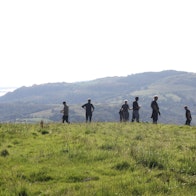| Home Students | Overseas Students | |
| Full MSc (180 credits) | £9,800 | £12,600 |
| Postgraduate Diploma (120 credits) | £7,400 | £9,600 |
| Postgraduate Certificate (60 credits) | £3,700 | £4,800 |
Note:
Course fees can be paid on a module-by-module basis or on a termly basis coinciding with Student Finance payments. More details can be found in the 2025-26: MSc and MRes Fees Terms and Conditions .
Enrolment Deposit – Prior to the commencement of the course, a £50 non-refundable deposit must also be paid alongside the completion of the pre-enrolment form.
Sustainability in Energy Provision and Demand Management – Students on this course should budget a further estimated £350 for the purchase of data-collecting equipment, some of which will be needed during the first core module. Further information about this will be distributed to Sustainability in Energy Provision and Demand Management applicants closer to enrolment.
Green Building – Students on the Green Building course should budget a further estimated £150 for the purchase of data-collecting equipment and software. Further information about this will be published and distributed to Green Building applicants closer to enrolment.










